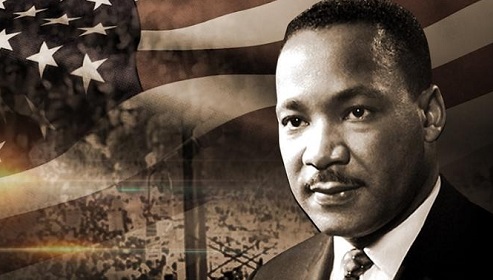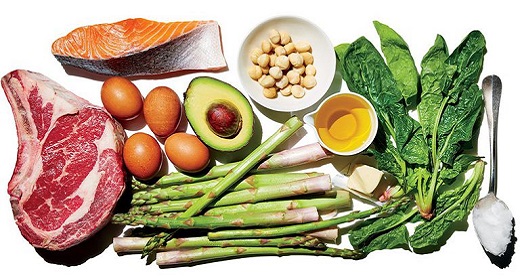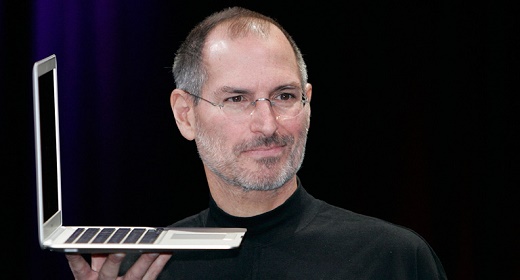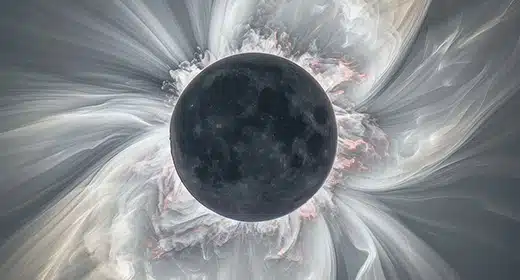by Michael Edwards: Can the world be reconstructed through the fusion of personal and social change? We say yes. Here’s to another year of Transformation…
On a winter’s night in 1955, a young preacher named Martin Luther King climbed into the pulpit of the Holt Street Baptist Church in Montgomery, Alabama. Once there, he delivered a speech to a packed crowd of close to five thousand people that would eventually lead to his own assassination, but breathe new life into the struggle to transform America and the world.
If his speech that night is remembered at all these days it’s because of what it helped to launch – the Montgomery Bus Boycott, which heralded a decisive turn in the movement for civil rights. What King said has largely been forgotten, yet the content of his speech was revolutionary in ways that stretch far beyond the context in which he delivered it. As I listen to it now on a scratchy YouTube clip the hairs on my neck stand up straight, the voices of the crowd rising to a crescendo as King talks about love for others and non-violence as the keys to the struggle for equal rights.
“But it is not enough for us to talk about love,” he said, “there is another side called justice. And justice is love in calculation. Justice is love working against anything that stands against love. Standing beside love is always justice.” “There lived a people, a black people” he continued, “a people who had the moral courage to stand up for their rights, and thereby infused new meaning into the veins of history.”
Love is the anchor or inward expression of social justice, I think King was saying, and justice is the outward expression of “love in calculation” – a conscious design for remaking the world around a radically-different rationality than self-interest. Deep transformations are possible if love and justice reinforce each-other to create a permanent shift in direction among human beings and the institutions they create.
“Only new selves could give birth to a new world, but only a new world could sustain the new human beings who constituted it, and who would sustain it in turn,” as Josiah Royce put it in the aftermath of the American Civil War, almost one hundred years before.
Today there is a resurgence of interest in the possibilities of transformation and an upsurge in attempts to put them into practice, spurred on by the failure of conventional approaches to make much headway against inequality and the urgency of problems like climate change which demand boundary-breaking solutions. That’s why we launched Transformation as a new section of openDemocracy on July 1, 2013. The section is designed to celebrate and debate the practice of radical change in our societies, examined through the interaction between love and social justice.
King, of course, was drawing from much older sources when he made his remarks that night, including philosophers like Royce and later on Paul Tillich (the subject of his doctoral dissertation), the legacy of Mahatma Gandhi and his Satyagraha movement, and the traditions of the social gospel. It’s also fair to say that there were others in the civil rights movement like Fannie Lou Hamer and Ella Baker who translated King’s words into on-the-ground realities with much more consistency, through their commitment to grassroots democracy and the struggle against sexism among their colleagues.
Then as now, there will be no end to patriarchy without deep-rooted changes in men’s behavior; no solution to climate change unless all of us reduce our consumption and carbon footprint; no decline in inequality unless we learn to share resources with each-other; no meaningful democracy until we work through our differences in a spirit of common purpose; no lasting peace if we continue to project our fears and insecurities onto other people.
But turning these examples around, there must also be real and living forms of politics and economics that grow from and reinforce the best qualities in ourselves, and in which we can actively participate. “We must be the change we want to see in the world” is a favorite quotation attributed to Gandhi, but it’s equally true that we must see the change we want to be – otherwise transformation is pure theory, and that means showing people that real economies can deliver justice and wellbeing, and real politics can bring people together to break the logjam of vested interests.
Unfortunately, such boundary-breaking experiments are in short supply, constantly constrained by the mantra that change is impossible because of – insert your favorite bogeyman – the world economy, footloose corporations, human nature, the weakening of governments, corruption in politics, the decline of the public, too much TV and far too much Rupert Murdoch. If we believe that only small changes are possible in our political and economic systems, then small change is all we’re going to see – another turn of the wheel with little or no forward movement.
The challenges of uniting personal and social change in this way were central to the social movements of the 1960s and 1970s, expressed through civil rights, gay liberation, the rise of the women’s movement and the first stirrings of environmentalism. In the decades that followed, this spirit was less in evidence in politics and activism, though it remained alive among feminists and other radicals like Audre Lorde, June Jordan, and bell hooks in the USA. Elsewhere, the social and spiritual sides of activism began to move apart, perhaps exhausted by earlier efforts or beaten down by the arrival of the neo-liberal revolution, and the celebration of self-interest and materialism that followed in its wake.
When we launched the new section we wanted it to be a place where people across the world could engage with each-other about the meaning of social transformation; where we could showcase concrete examples of politics, economics, and social activism that have been or are being transformed; and where we could share and debate the lessons about transformation that are being generated along the way. We were interested in contributions in any area of transformation, including practices like “mindfulness” which seem to help the processes of personal development along, and new institutions and ways of doing things that build on and nurture a commitment to non-violence, love for others and radical equality. Most of all, we wanted to publish stories of people who are re-combining the personal and political in new ways. How have we progressed in our first eighteen months?
In raw numbers we’re doing better than expected. Our articles have been read over two million times, with 40 per cent of readers coming from North America, 37 percent from Europe, and 23 per cent from other countries. Our contributors are a very diverse group: around 60 per cent are women, 55 per cent are aged under 40, and 61 per cent self-identify as LGBTQ. One big disappointment is that we haven’t attracted many writers from Africa, Asia, Latin America and the Middle East, so that’s something we’re going to work on in the coming year.
Underneath these numbers, we’re reasonably satisfied with the spread of topics that we’ve covered. They range from racism to restorative justice, from war to nonviolence, from activism to formal politics, and from empathy to love in the public sphere. In each case, we’ve worked hard with contributors to bring out the added, transformative dimension of the experiences they describe, though it’s true that we’re still experimenting with how to do this well. It’s not easy! Sometimes the links between personal change and social change are obvious, as in new forms of economics that require a commitment to sacrifice and sharing; but elsewhere they are much more complicated. We’ve also covered the human dimensions of problem-solving that encompass art and music, storytelling and poetry, and the world of the emotions.
Through all these articles, we’ve aimed to challenge the reluctance of many progressive activists and writers to take the personal dimensions of social change as seriously as the political, by showing that personal change is not New Age narcissism – it means engaging in the daily struggle for dignity and justice in a different spirit that opens up more effective routes to action.
At the same time we also want to challenge the reluctance of many spiritual and self-help advocates to take the political dimensions of personal change as seriously as the inner life they espouse, by showing that love flourishes more easily when new institutions are built on sharing and solidarity instead of the mindless pursuit of competition, growth and power.
Both challenges have proven to be tough, and we’ve received some useful pushback in the comment threads on our articles from readers who are not persuaded about the benefits of a transformational approach as we define it. There are still doubts and suspicions – useful ones – on all sides. Some readers have posed questions about the value of mindfulness and other personal development practices when faced by the raw realities of power and injustice; while others who are steeped in these practices have reacted against the perceived antagonism that runs through some of the pieces we have published. But there is also a sense running through all of our material that we – as readers, editors and writers – are navigating through territory that doesn’t have a map.
Marrying a rich inner life dedicated to the cultivation of loving kindness and compassion with the practice of new forms of politics, economics and social activism is the key to transformation, but how this will actually work is anybody’s guess. Those who think they already have the answers waiting to be rolled out in detail are either fools or liars. Transformation is not another good-news magazine, but a place to engage with each-other about the realities and struggles of the radical imagination.
All great stories are love stories in one form or another, but the story of love and justice has not yet been told. With your help we aim to put that right. Welcome to another year of Transformation.















































